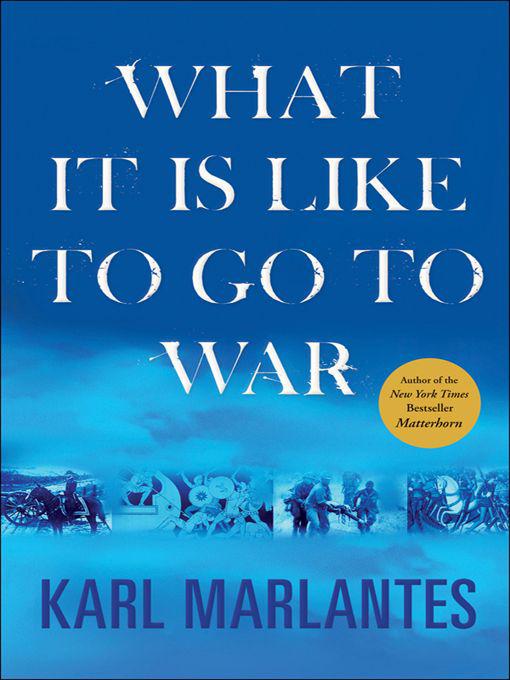
What It Is Like to Go to War
کتاب های مرتبط
- اطلاعات
- نقد و بررسی
- دیدگاه کاربران
نقد و بررسی

Starred review from June 20, 2011
Marlantes, author of the highly acclaimed novel Matterhorn, reflects in this wrenchingly honest memoir on his time in Vietnam: what it means to go into the combat zone and kill and, most importantly, what it means to truly come home. After graduating from Yale, Marlantes attended Oxford as a Rhodes scholar. But not wanting to hide behind privilege while others fought in his place, he left Oxford in 1967 to ship out to Vietnam as a second lieutenant in the Marine Corps. He eschews straight chronology for a blend of in-country reporting and the paradoxical sense of both fear and exhilaration a soldier feels during war. Most importantly, Marlantes underscores the need for returning veterans to be counseled properly; an 18-year-old cannot "kill someone and contain it in a healthy way." Digging as deeply into his own life as he does into the larger sociological and moral issues, Marlantes presents a riveting, powerfully written account of how, after being taught to kill, he learned to deal with the aftermath. Citing a Navajo tale of two warriors who returned home to find their people feared them until they learned to sing about their experience, Marlantes learns the lesson, concluding, "This book is my song,"

August 15, 2011
A manual for soldiers or anyone interested in what can happen to mind, body and spirit in the extreme circumstances of war.
Decorated Vietnam veteran Marlantes is also the author of a bestselling novel (Matterhorn, 2010), a Yale graduate and Rhodes scholar. His latest book reflects both his erudition and his battle-hardness, taking readers from the Temple of Mars and Joseph Campbell's hero's journey into the hell of combat and its grisly aftermath. That Marlantes has undertaken such a project implies his acceptance of war as a permanent fact of human life. We go to war, he says, "reluctantly and sadly" to eliminate an evil, just as one must kill a mad dog, "because it is a loathsome task that a conscious person sometimes has to do." He believes volunteers rather than conscripts make the best soldiers, and he accepts that the young, who thrill at adventure and thrive on adrenaline, should be war's heavy lifters. But apologizing for war is certainly not one of the strengths, or even aims, of the book. Rather, Marlantes seeks to prepare warriors for the psychic wounds they may endure in the name of causes they may not fully comprehend. In doing that, he also seeks to explain to nonsoldiers (particularly policymakers who would send soldiers to war) the violence that war enacts on the whole being. Marlantes believes our modern states fail where "primitive" societies succeeded in preparing warriors for battle and healing their psychic wounds when they return. He proposes the development of rituals to practice during wartime, to solemnly pay tribute to the terrible costs of war as they are exacted, rather than expecting our soldiers to deal with them privately when they leave the service. He believes these rituals, in absolving warriors of the guilt they will and probably should feel for being expected to violate all of the sacred rules of civilization, could help slow the epidemic of post-traumatic stress disorder among veterans.
A valiant effort to explain and make peace with war's awesome consequences for human beings.
(COPYRIGHT (2011) KIRKUS REVIEWS/NIELSEN BUSINESS MEDIA, INC. ALL RIGHTS RESERVED.)

May 1, 2011
Author of Matterhorn, a first novel about Vietnam that was one of last year's successes, Marlantes now offers a nonfiction account of being a 22-year-old second lieutenant trying to survive fighting in Vietnam and later trying to reconcile himself to having had to kill the enemy and watch comrades die. He argues that today's young soldiers are not emotionally prepared for war, as they once were through ritual, religion, and literature. If you care about the cost of war; with a 14-city tour.
Copyright 2011 Library Journal, LLC Used with permission.

























دیدگاه کاربران